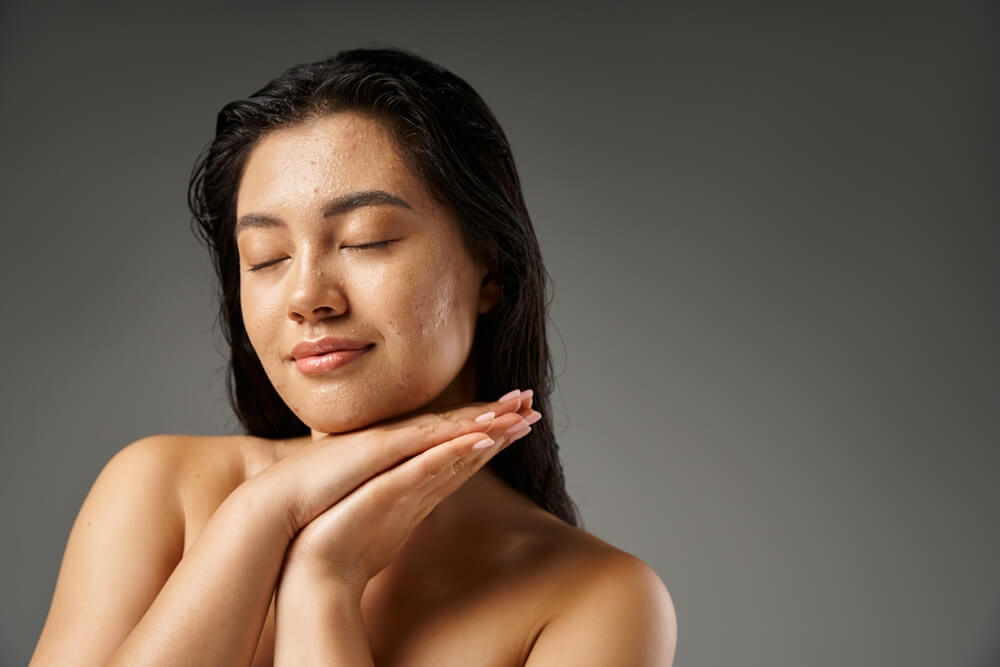
Published:
There are so many changes that occur in the body during menopause, some of which take place in the skin. These changes can often start happening several years before menopause, during perimenopause, with the issues you experience peaking once menopause finally kicks in.
The best thing that you can do for your skin at this point in life is to be fully aware and prepared for the changes that your skin is about to undergo. Keep reading as VouPre explains the connection between menopause, hormones, and skin, along with tips on what you can do to keep your skin looking fresh and healthy once you reach this stage in life.
Menopause: A Brief Explanation
Menopause is a natural process that usually occurs when a woman is between 45 and 55 years old. It’s officially marked by the lack of a menstrual period for 12 months, although the buildup to this often takes a few years.
Menopause occurs due to a natural decline in hormone levels with age. The ovaries gradually produce less estrogen and progesterone as time goes on. With both of these hormones inextricably linked to the skin in several different ways, the onset of menopause can significantly affect the complexion.
How Does Menopause Affect the Skin?
From collagen production to sebum production, a number of the skin’s functions are influenced by hormones. Let’s take a closer look at exactly what happens to the skin as menopause sets in:
Dryness and Dehydration
When it comes to the connection between hormones and skin, estrogen plays a big role. It helps with the production of natural hyaluronic acid, ceramides, collagen, and sebum. All of these are crucial when it comes to keeping the skin hydrated and naturally moisturized.
When estrogen levels start to drop, so does the skin’s ability to produce those hydrating substances. Even worse, without as much sebum to lock moisture in, any moisture that your skin is able to produce ends up evaporating away much faster. As you can imagine, this quickly leads to dryness and dehydration.
What can you do about it?
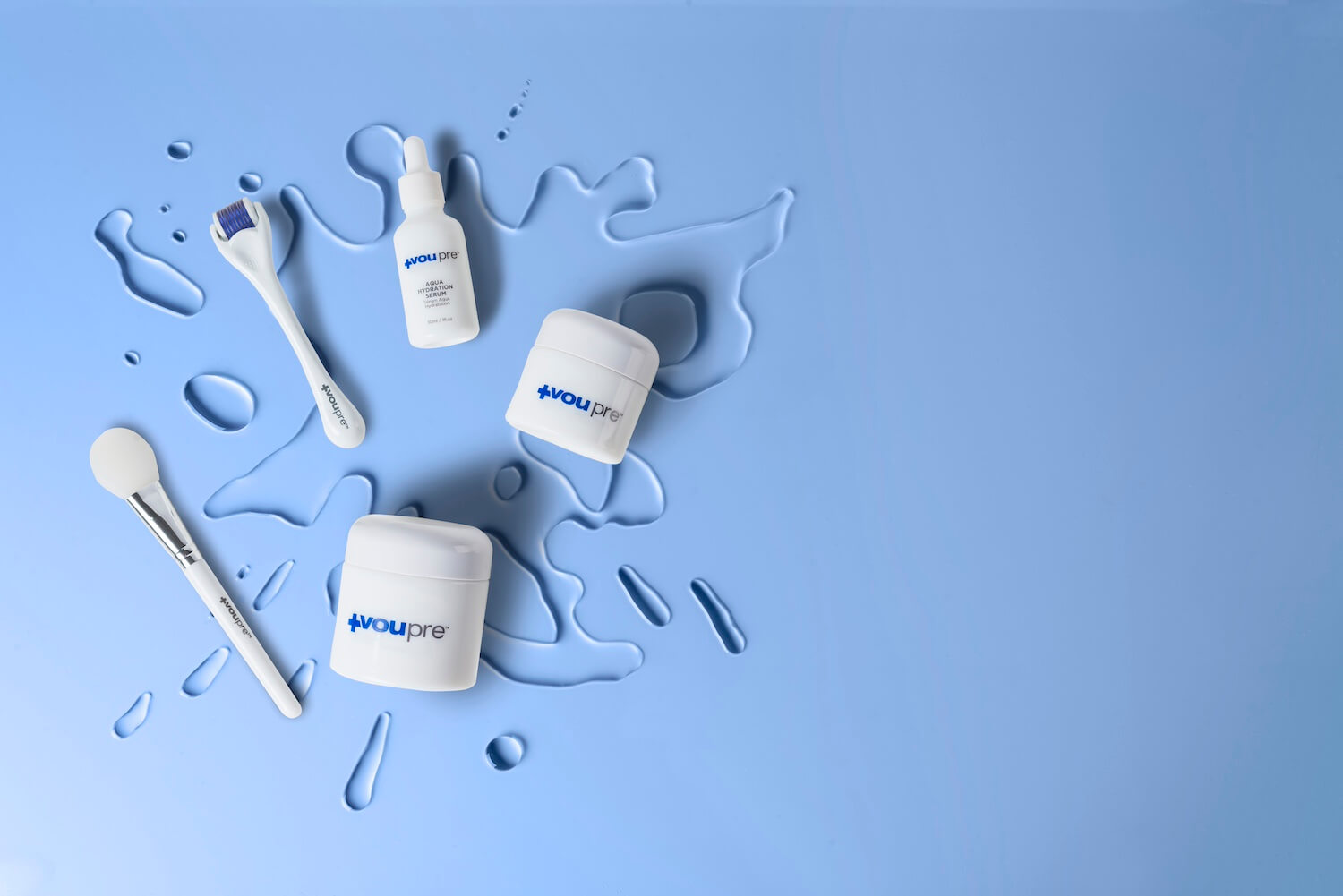
Although your skin may no longer be producing much hyaluronic acid, ceramides, and other hydrating substances naturally, there’s no reason why it can’t still have plenty of access to them via your skincare products. There are so many products out there that are loaded with hydrating and moisturizing ingredients, so try to add more of these to your skincare routine.
The VouPre Aqua Collection would be a great choice. The three products in this collection are all brimming with exactly what dry and dehydrated skin needs. There are plenty of humectants to draw in moisture, including sodium hyaluronate, collagen, squalane, and seaweed extract, plus several occlusives to lock that moisture in.
Redness and Irritation
All of those moisturizing compounds that your skin stops producing as much of once menopause kicks in form an integral part of your skin’s natural barrier. Without enough of them, skin barrier function declines.
This not only leads to the dehydration we discussed above, but it can also cause redness and irritation. One of the roles of the skin barrier is to block environmental irritants from entering the skin. Without this strong shield in place, irritants find their way into the skin’s deeper layers with ease, triggering a reaction in the skin.
What can you do about it?
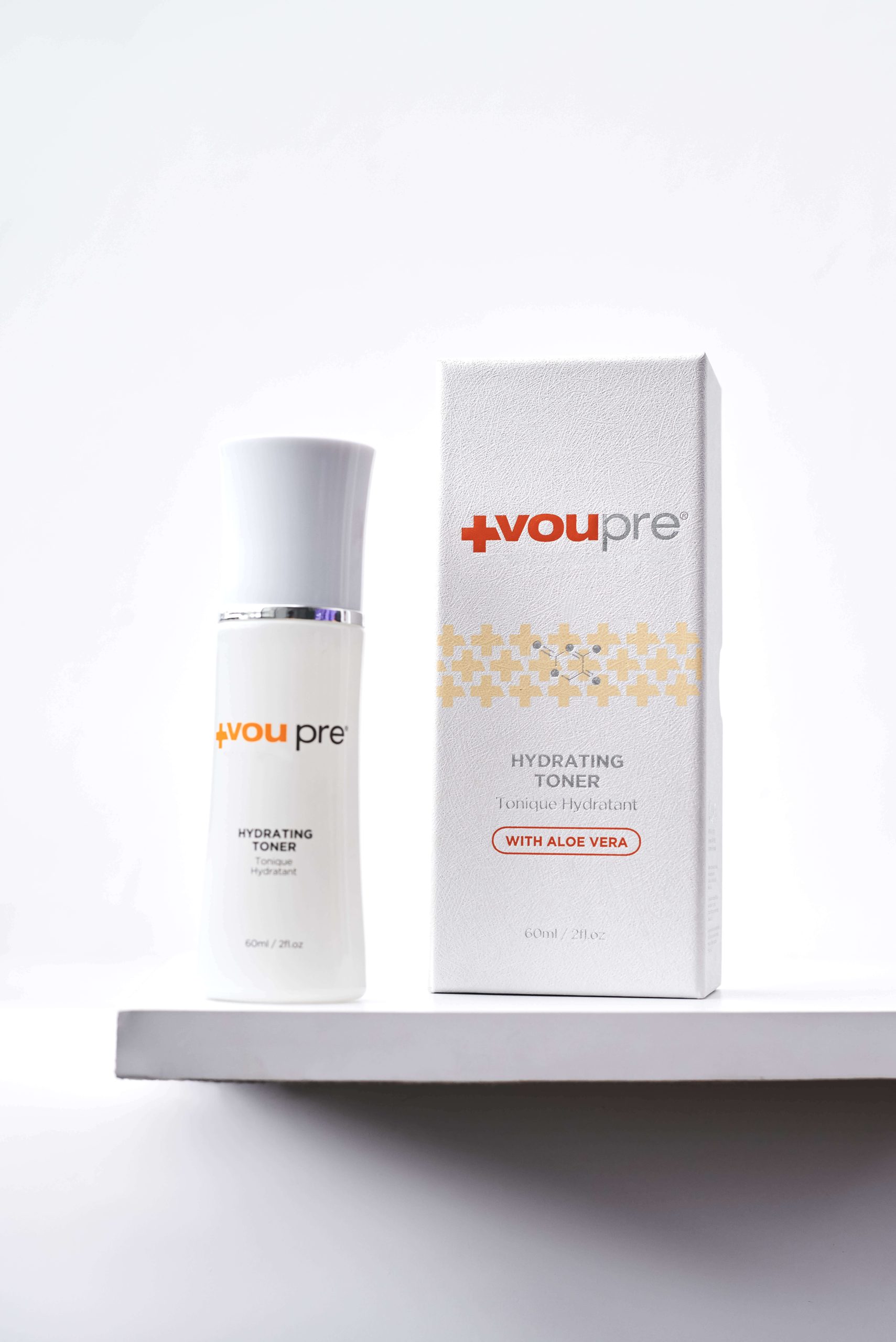
There are two main steps to take if you’re dealing with sensitivities and irritation due to menopause. The first is to soothe the feeling of inflammation in your skin. Certain ingredients are revered for being able to do this, with aloe vera being one. It contains a compound called aloin, which has been proven effective in the fight against inflamed-looking skin. Aloe vera extract is great, but aloe vera leaf juice, which you’ll find in the VouPre Hydrating Toner, is even better.
In addition to this, you’ll also need to work on ensuring that your skin barrier feels as strong and resilient as possible. Keeping it well moisturized is a good way to do this. Other techniques, such as slugging, can also help to give that barrier a boost.
Fine Lines and Wrinkles
As we mentioned earlier, collagen production is heavily influenced by hormones. Collagen is the main structural protein in your skin. It’s responsible for keeping your skin firm, voluminous, and smooth.
When the collagen in your skin declines, so will your skin’s firmness. It starts to turn lax, which means that fine lines and wrinkles form very easily. Sagging also starts to develop at this stage, and it can often make the skin look much older than it actually is.
What can you do about it?
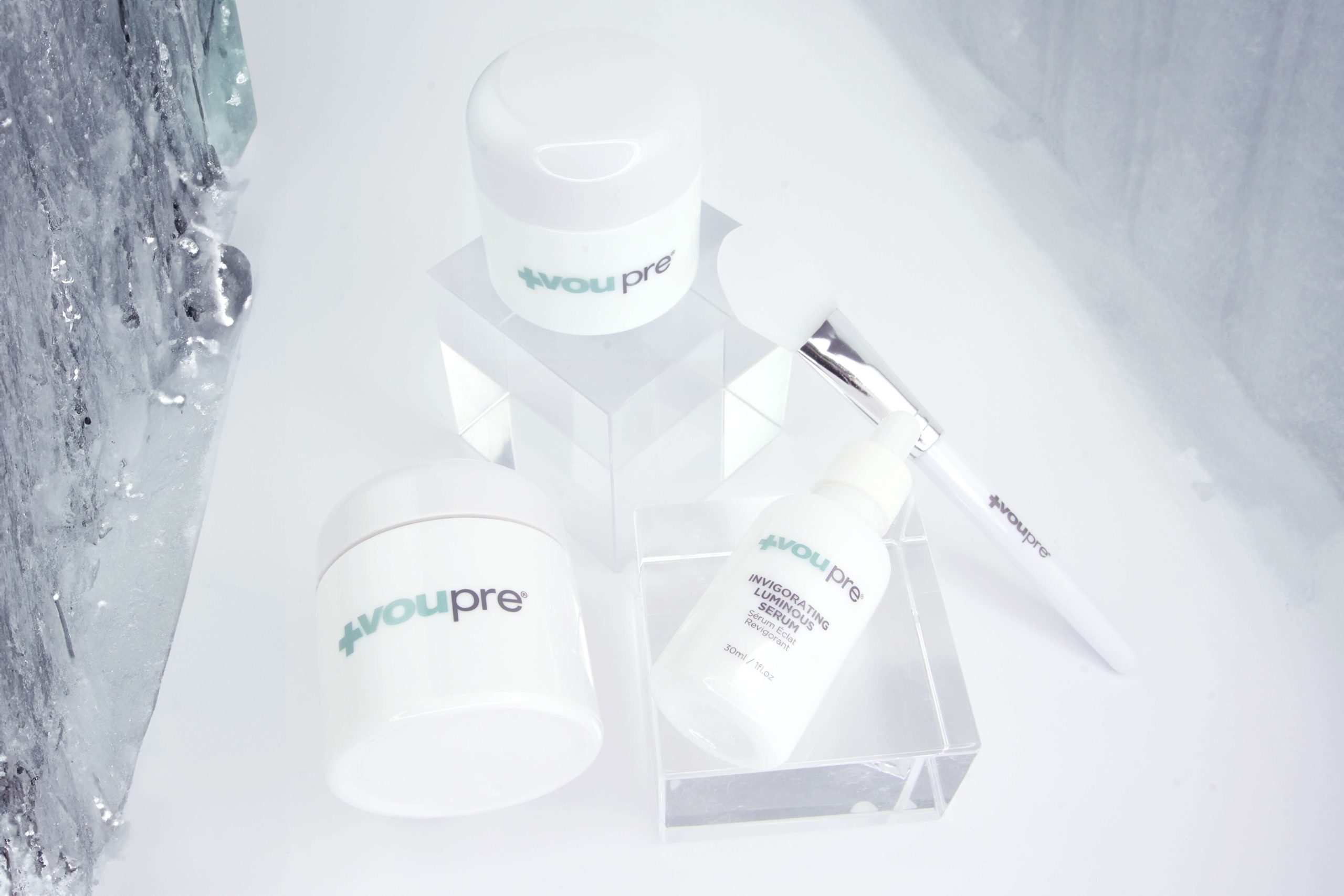
Fortunately, there are certain skincare ingredients out there that are great for giving the skin a smoother and firmer finish. Sodium hyaluronate, for example, which you’ll find in all three products in the VouPre BioCool Collection, plumps up the complexion to leave it looking more voluminous and youthful. Being a hydrating ingredient that also keeps the skin barrier feeling supported, it will help with the other visible skin concerns that menopause brings on as well.
The VouPre Wrinkle Repair IV Treatment would also be a worthwhile investment. This specialized solution can be applied directly to fine lines and wrinkles. After just a minute or so, those creases will look much less noticeable. Although the effects are temporary, this formula contains several ingredients that will leave your skin looking smoother in the long run too, so long as you use it regularly.
Acne Breakouts
When it comes to how menopause affects hormones and skin, estrogen isn’t the only hormone you need to think about. When estrogen levels drop, this means that the ratio of testosterone, the male hormone, increases.
This is believed to be why many women experience a surge of acne breakouts as they go through menopause. It’s a form of hormonal acne, which often persists even when estrogen supplements are taken.
What can you do about it?
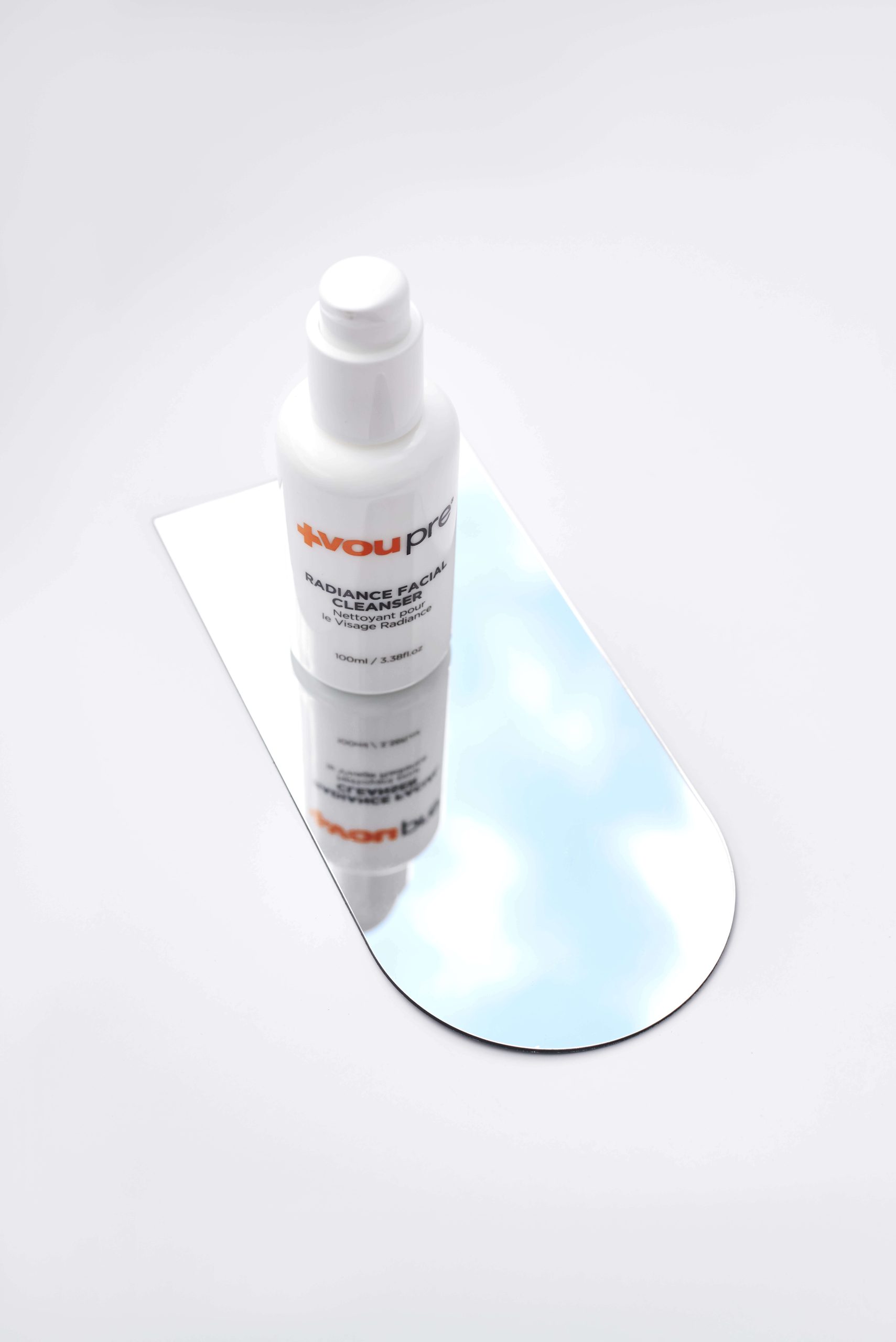
Since menopause causes the skin to thin to such an extent, it’s far too sensitive for the acne treatments that you used in your teenage years. Instead, start by going through all of your skincare products to make sure that none of them contain any comedogenic, meaning pore-clogging, ingredients.
Keeping your pores clear of blockages with a good cleansing and exfoliating regimen is important as well. However, again, the products that you use will need to be gentle enough for thin and delicate skin. A cleanser like the VouPre Radiance Facial Cleanser, which contains a few moisturizing ingredients, would be a good choice. Meanwhile, when it comes to exfoliation, peels are known for their gentle nature. The VouPre Deep Renewal Facial Peel will work to keep the appearance of clogged pores at bay, without causing menopausal skin any irritation.
Hyperpigmentation
Although not directly related to menopause, the changes in your hormones and skin at this time in life mean that hyperpigmentation often takes a bigger toll. These dark spots are caused by sun damage. The damage accumulates in the skin, which is why dark spots aren’t noticed immediately after the damage occurs.
The fluctuating hormone levels in your body also make your skin more vulnerable to damage. This means that subsequent UV exposure will significantly exacerbate the damage that’s being caused to your skin. New dark spots will form at a much faster rate while existing areas of hyperpigmentation will spread and darken even further.
What can you do about it?
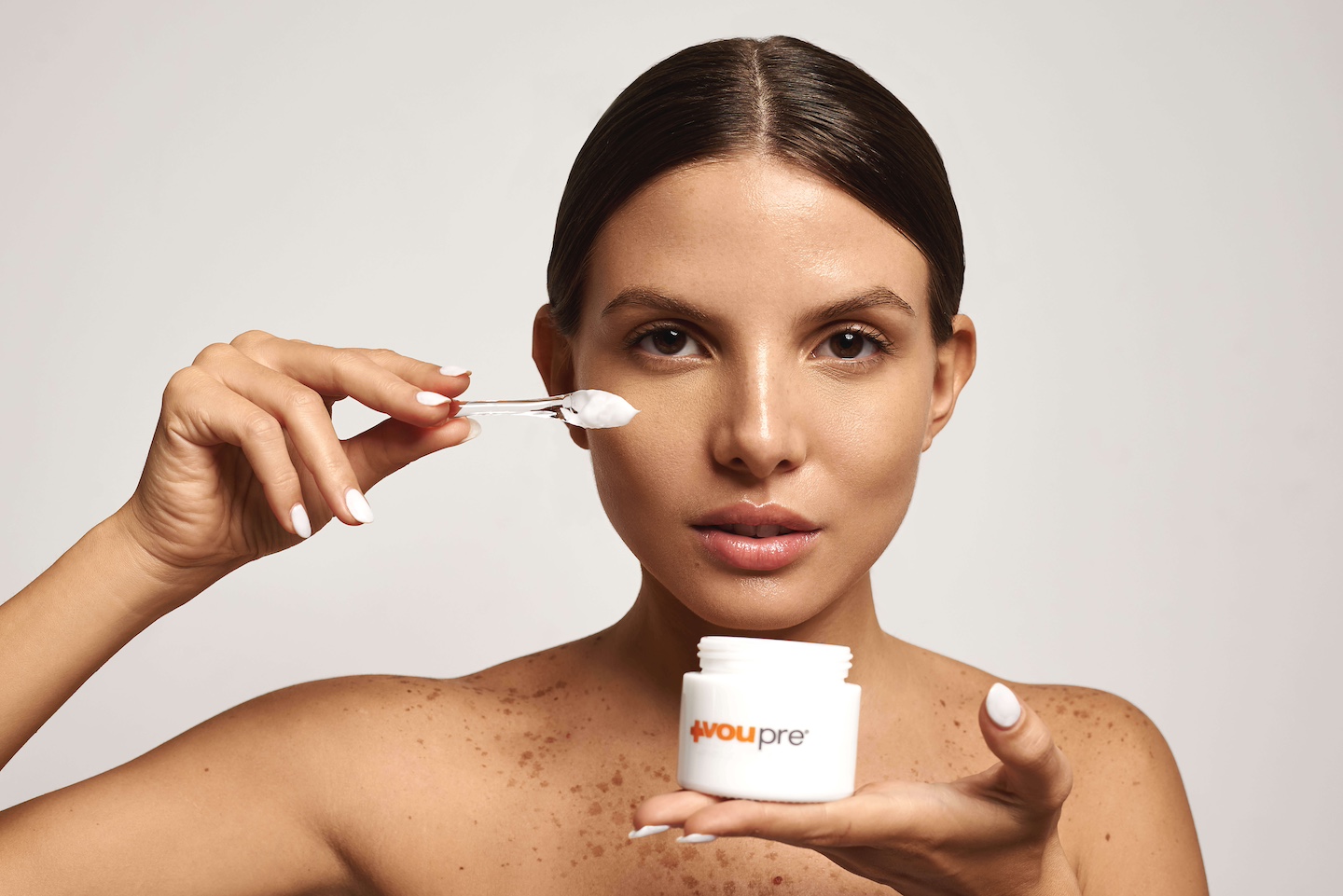
The first step to take is to ensure that you’re protecting your skin from the sun as much as possible. This is the only way to stop those UV rays from causing such serious damage to your skin. Make sure that you’re religiously applying a sunscreen, like the VouPre Age Defense Cream SPF 30, daily. Reapply it every couple of hours, and keep these habits up in the winter months too. UV rays damage the skin year-round. Taking sun protection more seriously won’t just help with the appearance of hyperpigmentation – it will also make a difference in your quest to prevent the visibility of fine lines, wrinkles, and sagging skin.
Of course, there are also some skincare ingredients out there that can make dark spots look lighter. Vitamin C is renowned for this. If you aren’t already using this antioxidant, add it to your skincare routine in the form of a serum. The VouPre Vita C Serum contains two forms of vitamin C. It’s also loaded with other antioxidants, plus some plant oils to keep your skin better hydrated.
Increased Facial Hair
Although not strictly skincare-related, another change that women often notice during menopause is an increase in facial hair. Just like acne, this issue is due to the body’s hormonal ratio shifting, with male hormones becoming more dominant.
While there are plenty of hair removal options out there, many of these are quite harsh on the skin. With the skin being more fragile at this stage in life, they can often cause new skin concerns to arise.
What can you do about it?
Explore some of the gentler hair removal methods out there. There are many professional treatments, like laser hair removal, that you can turn to. Although they may be costlier and more time-consuming to start with, they won’t irritate your skin in the way that waxing or bleaching will. They also offer longer-term results. You won’t need to worry about any unwanted hair returning for quite a while!
Understanding the Connection Between Hormones and Skin
Once you understand how strongly connected your hormones are to your skin, it’s easy to see why so many changes take place as you reach menopause. There’s no denying that some of these changes can be difficult to deal with, but there are plenty of things that you can do to keep your skin looking smooth, bright, and healthy for many more years to come.
Click here to upgrade your skincare routine with more bestselling products from VouPre.






